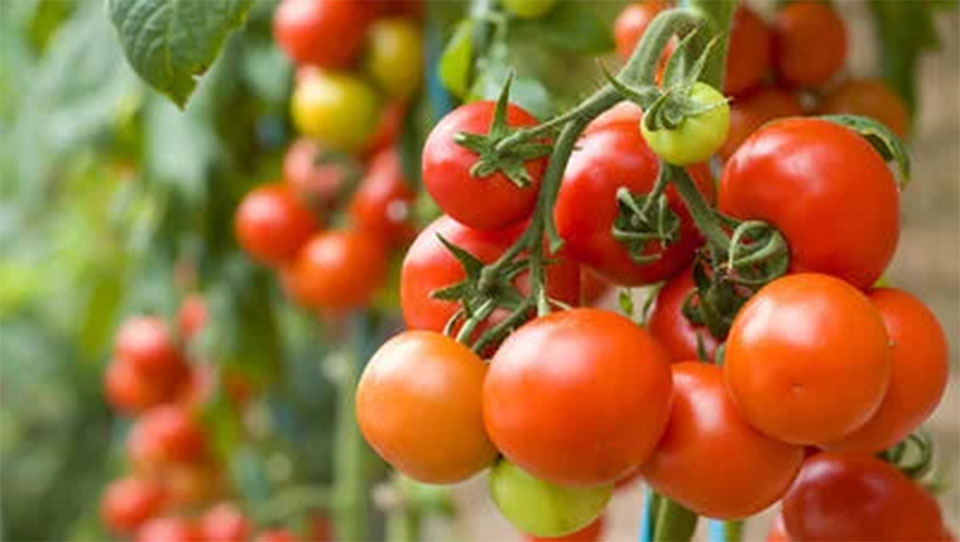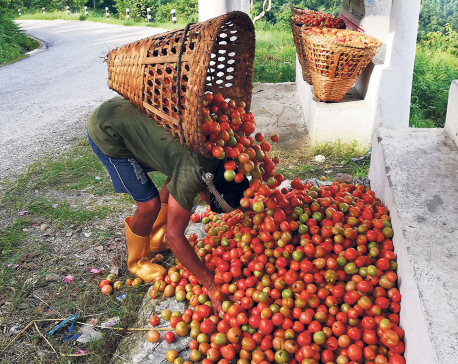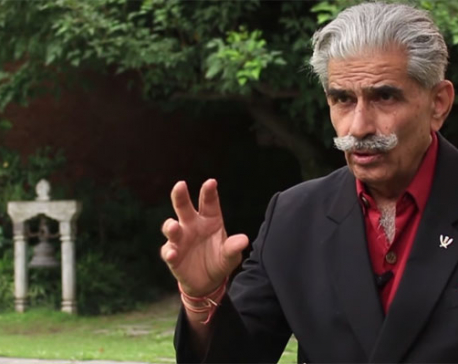
OR
Low production in India causes tomato price hike
Published On: December 2, 2017 08:52 AM NPT By: Republica | @RepublicaNepal

KATHMANDU, Dec 2: Plunge in tomato production in India is one of the several factors behind its price hike in the market of Kathmandu, wholesalers in Kalimati have said.
It has been over a month since tomato import from India has been nil as its price in India is far higher than in Kathmandu.
“Flush of tomato import used to stabilize the price in our market but now the import is almost nil,” said Bimal Dhungana, a wholesaler in Kalimati who is importer of tomatoes and other vegetables from India.
Traders who import from India informed that tomato production has gone down in India causing the price hike.
“No import from India since the last one and half a months has also put pressure on the supply of tomatoes from domestic pocket areas such as Kavre, Dhading, and outskirts of Kathmandu,” said Dhungana. “Two to three big trucks each carrying 10 tons of tomatoes were coming but now the Indian supply has become nil,”
Only the hybrid tomatoes (which are also called large tomatoes) eaten as salad and consumed by high-end users and star hotels is being imported from India. Its price is higher than the small tomatoes.
The wholesale price of first grade hybrid tomatoes is Rs 1,900 per crate, traders informed. Wholesale price of domestic tomatoes (also called small ones) produced here in the country hovered between Rs 75 to Rs 55 per kilogram over the last two weeks and the retail price exceeded Rs 100 per kilogram.
However, import of other vegetables like capsicum, varieties of green beans, and ladies’ fingers continues from India. But their prices are higher than usual, and the reasons are not clear.
Talking to Republica last week at Baneshwar vegetable market, Arjun Parajuli, tomato farmer of Mandan Deupur municipality in Kavre, said that overall tomato production in the villages have gone down this year.
“Reasons like acidity of soil and lack of fertilizers have reduced the production in this cycle, which starts from plantation of the saplings of tomatoes in mid-August to mid-February. Besides, the number of farmers producing tomatoes has decreased,” Parajuli added.
Ramesh Rijal, a wholesaler in Kalimati who hails from Dhading, informed that tomato fields in several parts of Dhading have now been converted into factories of cement or brick kiln. “On top of this, youths have either flown to Malaysia and Middle East or have gone to cities for study. The parents, in lack of supporting hands, are producing fewer tomatoes,” added Rijal.
Three years ago, oversupply of tomatoes in the valley and other pocket areas of Kavre and Dhading had led the price of tomatoes to plummet lower than Rs 20 per kg at the retail market, and this had prompted farmers to protest by spilling truckloads of tomatoes on the street.
Arjun Sapkota, a tomato farmer at Panchkhal in Kavre, informed that production has declined by over two-third because of heavy rainfall during the budding period.
“However we are happy that the tomatoes have fetched record price this year, up to Rs 2,200 per crate,” said Sapkota.
You May Like This

Farmers worried as India halts tomato exports via Kakarbhitta
ILAM, July 14: A bulk of Nepal's vegetable exports via Kakarbhitta border point in eastern Nepal used to be tomatoes... Read More...

India to tax 30 American products in ‘equivalent’ retaliation for US tariffs hike
India will suspend trade concessions and raise import duties on 30 products from the United States by up to 50... Read More...

China outrunning India in Nepali politics, India mulling a new strategy
With an unprecedented activeness of China, India seems preparing to counter it. India's Nepal Affairs expert and retired Indian Army... Read More...



Just In
- World Malaria Day: Foreign returnees more susceptible to the vector-borne disease
- MoEST seeks EC’s help in identifying teachers linked to political parties
- 70 community and national forests affected by fire in Parbat till Wednesday
- NEPSE loses 3.24 points, while daily turnover inclines to Rs 2.36 billion
- Pak Embassy awards scholarships to 180 Nepali students
- President Paudel approves mobilization of army personnel for by-elections security
- Bhajang and Ilam by-elections: 69 polling stations classified as ‘highly sensitive’
- Karnali CM Kandel secures vote of confidence















Leave A Comment